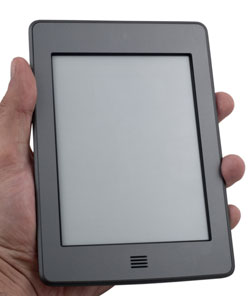I felt I had to reply to a comment I saw on Amazon.com recently. The situation was this: a new, non-fiction book was being “reviewed” and one of the commenters gave it one star. It’s impossible to give anything lower on Amazon.com. The reasoning was that the price of the Kindle version of the book was too high.
Most commenters probably agreed that it was overpriced. However, the commenter hadn’t even purchased the book, and it was agreed that it was poor form to slight the price in that case, as the bad rating went against the overall quality of the book using Amazon’s rating system. The star rating — as it applies to books — is usually reserved for rating the contents and whether the reader liked or disliked the publication.
One commenter wrote the following while discussing this issue: “It costs very little to make an ebook. For amazon’s Kindle, one need only to upload the book in Microsoft Word format and upload a picture of the cover of the book, and perform a few odds and ends and you are set to go – no production costs after that, no worry about printing too many copies, etc.”
My answer to at least this statement follows:
“In reply to [reviewer’s name], it’s not as easy as “perform(ing) a few odds and ends” to prepare a book to be published in the correct format for the Kindle — or any other ebook. I’m an editor and I create ebooks for clients, so I know of what I speak.
If you are a regular reader of ebooks, you’ve seen books which have poor ‘translation’ from the original version, or perhaps were done without proper preparation. Those ebooks have strange paragraph returns, unexplained spacing, remaining page numbers, and countless other anomalies. (That doesn’t count the poor editing that many exhibit!)
Each major distributor of ebooks demands a different format, as well. If ebooks were offered in a standard format across the board, it would be much easier (and less expensive) to publish them. Unfortunately, that is unlikely to happen, as we know in the computer world.
I do agree that prices of ebooks should be lower than that of print books. However, major publishers like Harper still need to make a profit, as do the many, many entities down the line who get a cut of the price, including Amazon and of course, the author (who makes very little from this, I’m sure). BTW, authors have little to do with setting the price if a publisher is distributing the book.
Big publishers are in trouble because of the self-publishing industry, no doubt about it. If buyers — that’s YOU — insist on quality and agree to pay a fair price, then the market will follow, however slowly that happens.”
© Jan McClintock of We Need More Shelves


Thanks for the note, MK (and right back atcha!). Additionally, it’s hard enough to trust the reviews on Amazon without those “extras” thrown in.
Love your surname, too, BTW. I’d love to find out if we’re related. 🙂
Just found your blog and this is a great post. I’ve seen a lot of one-star reviews lately that have nothing to do with the book content. The reviewer is rating the price, or the shipping experience for a print book, rather than the book itself. This is a real disservice to both the author and potential readers. Thank you for sharing.